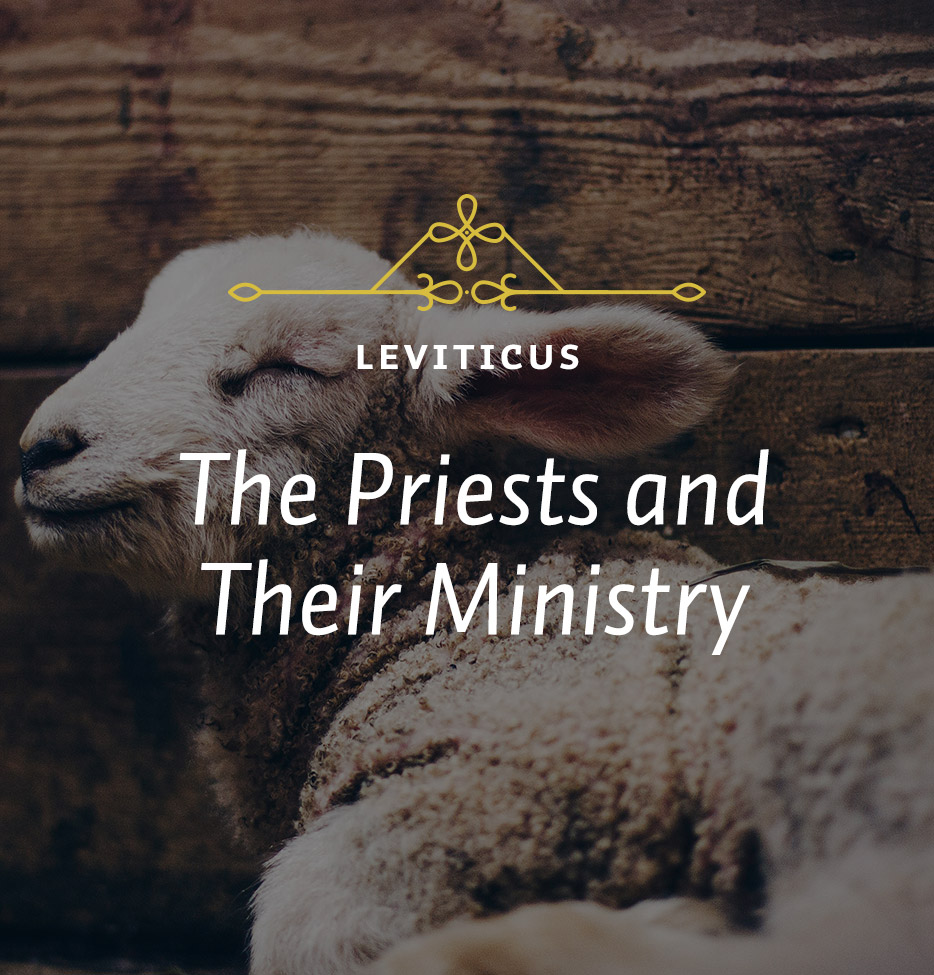In yesterday’s devotional, we concluded with the idea that the sacrifices testified to God’s holiness.
This might lead us to ask the question, “What is the greatest of all God’s attributes?” Well, all of God’s attributes are great. But the Bible most emphasizes the attribute of God’s holiness. Today we focus on His love, and point to John 3:16: “God so loved the world that he gave his one and only Son.” It’s true that God’s love is a very great thing, but the emphasis of the Bible is upon God’s holiness. It’s because God is holy that he had to send His Son to be the Savior. He couldn’t save people just by loving them. He had to send Jesus to die so that His holiness might be satisfied.
The sacrifices that are offered in Leviticus 9 as part of worship are first of all for Aaron and his sons—that is, for the priests—and second, for the people. Now in the previous chapter the sacrifices were made at the ordination of the priests, which were a bull, a ram, and then another ram. But for the people here in Leviticus 9, the sacrifices were a male goat (the sin offering), a calf and a lamb (the burnt offerings), and an ox and a ram (the peace/fellowship offerings). For both the priests and the people, the sequence of the offerings was the same: first the sin offering, then second, the burnt offering, followed by the fellowship offering. This tells us how we must approach God.
Our big problem in approaching God is that we are sinners, and sin has to be dealt with. So when you come to God, the first thing that you have to do is recognize that Jesus Christ is your sin offering. Because He died for you and me, we must give ourselves to God completely, which is what the burnt offering signifies. The difference between some of the other offerings and the burnt offering is that the burnt offering was consumed completely upon the altar. That is what Jesus meant when He said, “If you want to be my disciple you have to deny yourself, take up your cross, and follow me” (see Luke 9:23). Because of Jesus’ sacrifice, we then have peace with God, which is what the fellowship offering shows. That’s the sequence in our Christian experience. We have forgiveness of sins, the dedication of ourselves to God, and fellowship or peace with God.
The communion service is a reminder and a memorial to the sacrifice of Jesus Christ. The bread and wine signify that He gave up his life as the offering for our sin. And as we come to the table and present ourselves to God, we are to search our hearts and confess our sins in order that there might not be a barrier that breaks our fellowship with the Lord. The communion table also signifies fellowship as we partake with other Christians, who like us have been saved through Jesus Christ.
Following the worship service described in Leviticus 9, we’re told twice that Aaron offered his blessing. First, Aaron lifted his hands toward the people and blessed them (v. 22). Then we see that Moses and Aaron both blessed the people (v. 23). We are not told what those words of blessing were, although Jewish commentators assume that it was what is known as the Aaronic blessing from Numbers 6, which is introduced in verse 23 by these words: “This is how you are to bless the Israelites.” The blessing then follows:
The LORD bless you and keep you;
the LORD make his face to shine upon you and be gracious to you;
the LORD turn his face toward you and give you peace.
In all of life there is nothing more important than to have the face of God turn toward us in blessing. The way to experience that is by pursuing the holiness that everything in these chapters signifies.
At the end, God accepts the people’s worship and He reveals His shekinah glory (vv. 23-24). He came down upon the tabernacle, and then, in a special demonstration of His blessing, a fire went out from the presence of the Lord and consumed what was left on the altar. This is the same thing that happened at the very end of Exodus, after the people had constructed and set up the tabernacle. We were told then that God came down in the shekinah glory.
What were the characteristics of this worship from what we’ve seen so far? First, it was dignified and formal. Second, it was orderly. Step by step everything was done having monumental and eternal significance. Third, it was serious. Nobody was laughing and joking when they were worshiping God. Fourth, it took time. Imagine how much time it took to prepare those sacrifices and offer them and go through the steps, first of all for Aaron and his sons and then for the people. This was the work of an entire day.






